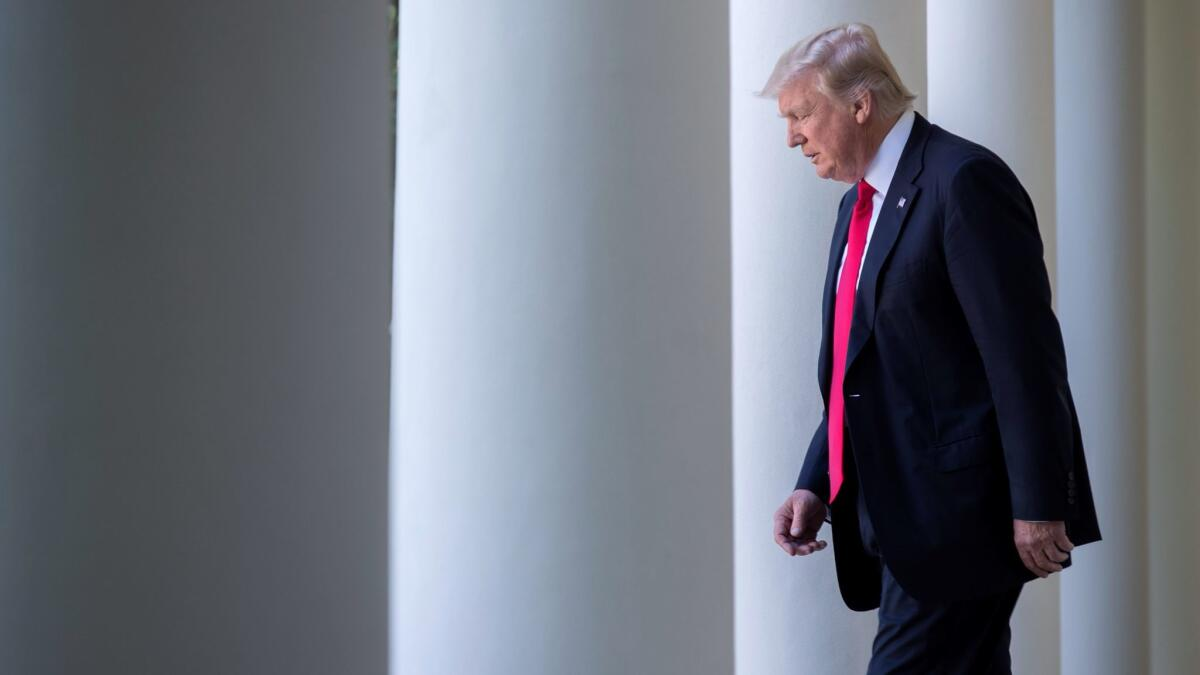Why Dershowitz is Wrong

The esteemed professor of constitutional law, Alan Dershowitz, has shouldered a good deal of opprobrium lately from his fellow liberals for the legal arguments he has lobbed from the ivory tower in support of Donald Trump. A lifelong Democrat, Dershowitz may seem like an unlikely defender of the president. But there is a certain delight some take in playing the above-the-fray contrarian. And established academics are among those known to indulge in it. Dershowitz, with the publication of a new book, The Case Against Impeaching Donald Trump, may now be at the point of basking in the disdain of his peers.
The problem with Dershowitz’s argument is that he wants it both ways. He selectively interprets the removal of a sitting president as, by turns, a political and a legalistic decision. To see why, one needs to analyze two different arguments that he makes, both of which are central to the looming constitutional crisis.
First, he argues that a sitting president cannot be charged with a crime. He must be impeached, says Dershowitz, before he can be indicted.
This position is based on a sound principle. It is the principle that the most powerful leaders in the American system should be subject to both democratic legitimation through elections and to the system of further checks and balances ensured by the Constitution. If a sitting president can be charged with a crime, tried, and possibly convicted in a federal court, then the prosecutor, judge, and jury in such a case would wield an extraordinary power, essentially unchecked. They would wield the power to over-ride the democratic election of a president.
Law is never black and white. Legal arguments, including the successful arguments of prosecutors, are based on the decision to classify actions and behaviors within certain legal categories. And however plain the evidence of the case may be, judgement is always required in deciding which acts fall into which category, be it treason, defrauding the United States, or otherwise.
We routinely entrust such decisions to our federal courts, partly because those courts are ultimately accountable to the Supreme Court, and the Supreme Court is subject to the checks and balances of the other branches, the president and Congress, who are ultimately accountable to the people. However, having the federal courts unseat a president arguably short circuits this system of checks and balances, and veers too far from one of the fundamental principles of the US Constitution, that the authority of government shall ultimately come from the people.
To try a president in court would be to set up a tete-a-tete between two branches of government, and to defer to the only branch not elected by the people. The problems of such a scenario are indicated by the absurdity of the ensuing question of a presidential “self-pardon.” It all illustrates the wisdom of the impeachment procedure set up by the Framers, which appeals to the third branch, Congress.
Dershowitz, in arguing against the constitutionality of indicting a sitting president is standing on the solid pluralistic principle of democratic accountability through checks and balances and elections.
But, are we then saying that the president is above the law? No, because “the Law” at this high level is embodied in the branches of government and the Constitutional relations between them. Not solely in the courts.
The problem is that Dershowitz, in his new book, is now continuing his pontifications in a way that violates the very principles on which the above argument is based.
Here, Dershowitz is addressing the separate question of the proper constitutional basis of impeachment and removal of a president. The Constitutions says the president may be removed for “Treason, Bribery, or other high Crimes and Misdemeanors.” Dershowitz not only interprets high crimes and misdemeanors very narrowly, but he also, in a selective deferral to legalistic rather than principled reasoning, argues that the Supreme Court should be the ultimate arbiter of whether the Senate has correctly interpreted this freighted phrase. This latter argument is inferred from the unelaborated stipulation, also in Article II of the Constitution, that the Chief Justice of the Supreme Court shall preside over the Senate during the impeachment trial.
This is quite a tenuous jump to make. It is an altogether unjustified jump, and in the present context a dangerous one, given its obvious contradiction of the professor’s better reasoning on the question of indicting a president. And it should be sufficient grounds for pundits, journalists, and those in power to look elsewhere for wisdom on this matter.
What would be more consistent with Dershowitz’s earlier, more well reasoned argument (which incidentally is plenty contrarian on its own in his left leaning social circles) would be the position of Cass Sunstein, another esteemed legal scholar, who advises that “a crime is neither necessary nor sufficient” grounds for impeachment. When it comes to impeachment, Sunstein's position implies, we should defer to Congress, the “First Branch,” the most plural and democratic branch, which the Founders trusted best, and to whom they explicitly gave the principal check on presidential power.


Comments
Post a Comment